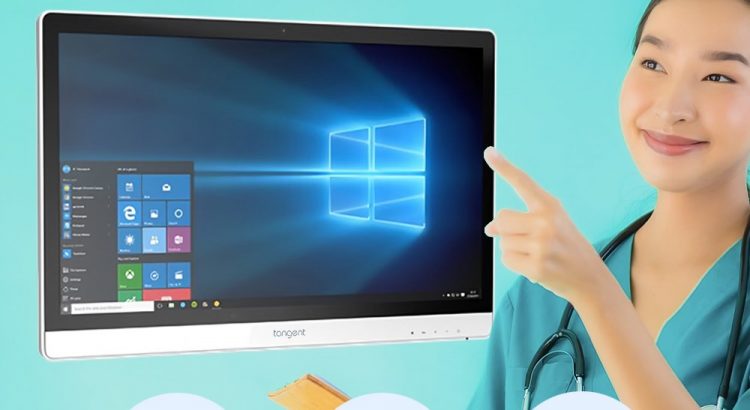In today’s fast-paced world, technology plays a crucial role in transforming various industries, and healthcare is no exception. One such groundbreaking innovation that has revolutionized medical practices is the Medical PC. In this blog, we delve into the capabilities, benefits, and potential applications of these advanced computing systems in the healthcare landscape.
What is a Medical PC?
A Medical PC, also known as a medical-grade computer or healthcare PC, is a specialized computing device designed specifically for the unique demands of healthcare environments. These PCs are equipped with features and functionalities that cater to the stringent requirements of healthcare providers, ensuring efficiency, accuracy, and enhanced patient care. They are built to withstand the challenges of clinical settings, such as exposure to liquids, frequent disinfection, and compatibility with medical peripherals and devices.
Key Features and Benefits:
Medical PCs offer a wide range of features and benefits that contribute to improved healthcare outcomes. Firstly, they are designed with antimicrobial materials, preventing the growth and spread of harmful bacteria and germs. Their fanless design reduces the risk of airborne contaminants, making them ideal for sterile environments. Medical PCs are also equipped with high-resolution displays, enabling healthcare professionals to view medical images, patient records, and vital signs with utmost clarity.
Furthermore, these specialized computers are integrated with advanced connectivity options, including Wi-Fi, Bluetooth, and RFID, facilitating seamless communication and data exchange. The ability to connect to medical devices such as ultrasound machines, EKGs, and digital imaging systems enhances workflow efficiency and eliminates manual data entry errors.
Moreover, medical-grade computers are built to ensure patient data security and privacy, complying with stringent regulations like HIPAA. They offer features like biometric authentication, data encryption, and secure network connections, safeguarding sensitive medical information from unauthorized access.
Applications in Healthcare:
The versatility of medical PCs makes them invaluable in a wide range of healthcare settings. In hospitals, these devices streamline clinical workflows, allowing healthcare professionals to access patient data, order tests, and input treatment plans in real-time. Medical PCs are also utilized in operating rooms, where their sterile design and compatibility with surgical equipment enable surgeons to view critical patient data during procedures.
In addition, medical-grade computers find applications in telehealth and telemedicine, facilitating remote patient monitoring, virtual consultations, and real-time video conferencing. They can also be integrated into mobile medical carts, enabling healthcare providers to access patient information and record updates at the point of care, enhancing efficiency and reducing errors.
Medical PCs have undoubtedly transformed the healthcare landscape, enhancing patient care, improving efficiency, and ensuring data security. With their specialized features, durability, and compatibility with medical devices, these advanced computing systems are poised to play a vital role in the future of healthcare, delivering better outcomes and revolutionizing medical practices.
